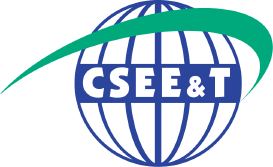We are thrilled to announce that four research papers have been accepted at the 35th IEEE International Conference on Software Engineering Education and Training (CSEE&T 2023) in Tokyo, Japan.
- 35th IEEE International Conference on Software Engineering Education and Training

Accepted papers address various topics in software engineering education ranging from recommendations for programming exercises to overcome ChatGPT, online vs. on-site instruction for programming courses, and interactive learning for programming to plagiarism detection and its impact on learning, highlighting the breadth and depth of our research efforts.
Here is a summary of the contributions that will be presented at CSEE&T 2023:
“Recommendations to Create Programming Exercises to Overcome ChatGPT” by Santiago Berrezueta and Stephan Krusche: The paper examines the impact of GPT models on programming education, identifying risks of over-reliance and academic dishonesty. It tests GPT’s capabilities with 22 exercises, evaluates solution adaptability, and offers strategies to integrate these models responsibly in coursework to foster authentic learning.
“Is Online Teaching Dead After COVID-19? Student Preferences for Programming Courses” by Stefanie Manger, Maximilian Sölch, Matthias Linhuber, Christoph Weinhuber, Philipp Zagar, and Stephan Krusche: This research paper provides crucial insights into students’ preferences with respect to learning modalities in higher education after the easing of COVID-19-related restrictions. For this, we conducted a case study lasting two semesters during the intro course of the project-based course iPraktikum.
“Introduction to Programming using Interactive Learning” by Stephan Krusche and Santiago Berrezueta: This paper details the implementation of interactive learning in a programming course for novice computer science students. It discusses the use of exercises with real-time feedback, communication portals, and computer-based exams. The promising outcomes from a performance comparison between two courses support the extension of this interactive learning approach across more computer science curricula.
“Plagiarism Detection and its Effect on the Learning Outcomes” by Santiago Berrezueta, Markus Paulsen, and Stephan Krusche: The paper investigates plagiarism patterns among first-year computer science students through three controlled experiments. It shows students are more prone to plagiarize when given the opportunity, particularly without plagiarism mitigation strategies. Early awareness of these strategies enhances student performance, indicating its role in stimulating autonomous learning.
Citations
Recommendations to Create Programming Exercises to Overcome ChatGPT.
Santiago Berrezueta, and
Stephan Krusche.
35th IEEE International Conference on Software Engineering Education and Training (CSEE&T 2023)
.
Tokyo, Japan,
August
2023.
Plagiarism Detection and Its Effect on the Learning Outcomes.
Santiago Berrezueta,
Markus Paulsen, and
Stephan Krusche.
35th IEEE International Conference on Software Engineering Education and Training (CSEE&T 2023)
.
Tokyo, Japan,
August
2023.
Introduction to Programming Using Interactive Learning.
Stephan Krusche, and
Santiago Berrezueta.
35th IEEE International Conference on Software Engineering Education and Training (CSEE&T 2023)
.
Tokyo, Japan,
August
2023.
Is Online Teaching Dead After COVID-19? Student Preferences for Programming Courses.
Stefanie Manger,
Maximilian Sölch,
Matthias Linhuber,
Christoph Weinhuber,
Philipp Zagar, and
Stephan Krusche.
35th IEEE International Conference on Software Engineering Education and Training
(CSEE&T 2023
)
.
Tokyo, Japan,
August
2023.
doi: 10.1109/CSEET58097.2023.00020
[BibTeX]